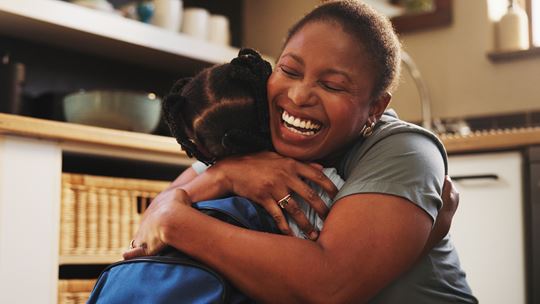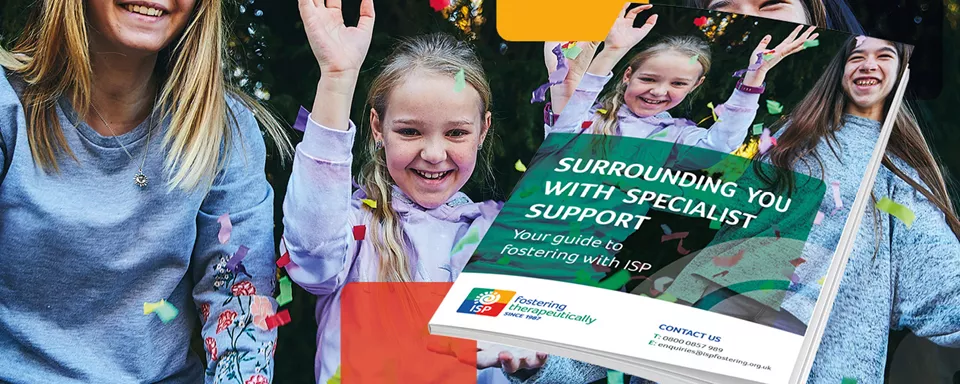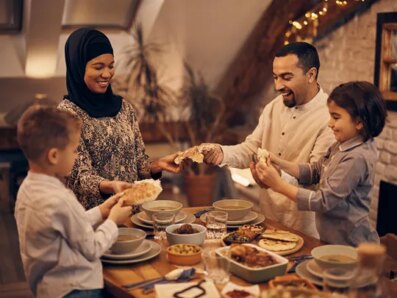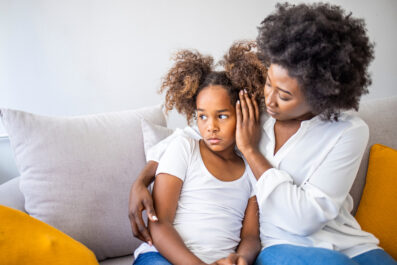Why do we need more Black foster parents?
Here in the UK, most foster parents are from a white background. While foster parents from any background can provide amazing care for Black children if they are given proper guidance and have a real understanding of the importance of understanding children’s heritage and identity, many children will benefit from living with families who share their lived experiences.
For Black children in care, having foster parents who reflect their ethnicity and culture can be a powerful, stabilising influence. Because of this, we’re eager to encourage more Black foster parents to join us in our mission to provide children with safe and loving home environments, particularly for Black children who are overrepresented in the British care system.

Foster care provides a safe and nurturing temporary environment for children who cannot live with their birth families due to a variety of reasons, such as abuse, neglect, or family crises. While fostering aims to provide stability and support during these difficult transitions, there is a growing need for more Black foster parents.
Cultural Understanding and Identity Development
Cultural understanding plays a pivotal role in a child’s development. Black foster parents are often better equipped to understand the specific cultural, religious, and social contexts that shape the lives of Black children. They are likely to appreciate the importance of maintaining connections to cultural traditions, like food and music, language, and religious practices that are integral to a child’s identity.
For children in care, particularly those separated from their families and familiar surroundings, having a foster parent who shares their cultural background can reinforce their sense of identity and belonging. It can also provide a safe space for discussing complex issues like race, discrimination, and inequality.
Representation and Relatability
Children often seek out connections in the most obvious and visible ways, such as finding common ground through physical likeness. A child’s first impression of their foster family can be deeply shaped by seeing someone who looks like them, shares their ethnicity, or reflects their cultural background. This sense of familiarity can be comforting and offer an immediate sense of connection.
We’ve seen this first-hand at ISP. For example, one of our Black children, upon meeting her Black therapist, expressed her relief and connection by saying, “You are just like me.” This simple yet powerful statement reveals how much children value seeing themselves reflected in the people around them.
This feedback from children reinforces the importance of mindful matching between children and their caregivers. While we work hard to equip all foster parents with the skills and knowledge to support children of all backgrounds through our training, we listen carefully to children’s needs. Whenever possible, we strive to match them with families who reflect their cultural, ethnic, and physical identities. By doing so, we are not only responding to children’s emotional needs but also fostering a sense of belonging and security.

Positive Role Models
Foster parents serve as incredible role models for children in their care. When Black children are placed with Black foster parents, they can benefit from having adult role models who share their cultural identity and lived experiences. This representation can inspire confidence, resilience, and aspiration in children.
Moreover, Black foster parents can provide insight and guidance on navigating experiences with racism and social injustice, offering real-world tools to help children manage these challenges. Having a strong, culturally resonant role model can positively shape a child’s self-esteem and long-term outlook.
Addressing Overrepresentation
Sadly, Black children in foster care are disproportionately represented, entering the system at higher rates than their white peers. In fact, 17% of children in care in England are Black or mixed ethnicity. Currently there is a significant shortage of Black foster parents to match this need.
This lack of representation can lead to Black children being placed with families who may not fully understand their cultural background, which without the right support, can cause issues like identity confusion, or feelings of isolation.
At ISP, while we provide specialist training and resources to support families fostering children of different ethnicities or religions, we recognise that building a diverse community of foster families is essential. This diversity allows us to better match children with families who can meet their individual needs— both physically and emotionally.

Improving Long-Term Outcomes for Children in Care
Building a more diverse community of foster parents helps ensure that children’s unique cultural needs are recognised and respected. This is especially vital for the long-term outcomes of Black children in care, as it fosters a deep sense of belonging, strengthens their cultural identity, instils pride in who they are, and helps them build a resilient sense of self.
Increasing the number of Black foster parents is essential to ensure that Black children in care have the representation, cultural understanding, and positive role models they need to thrive.
Join ISP today
If you’re interested in joining our professional team of foster parents, we encourage you to register your interest with us by filling in our online enquiry form or ringing us on 0800 0857 989. A member of our team will be eager to speak with you and answer any questions you may have about your potential journey to becoming a foster parent.






